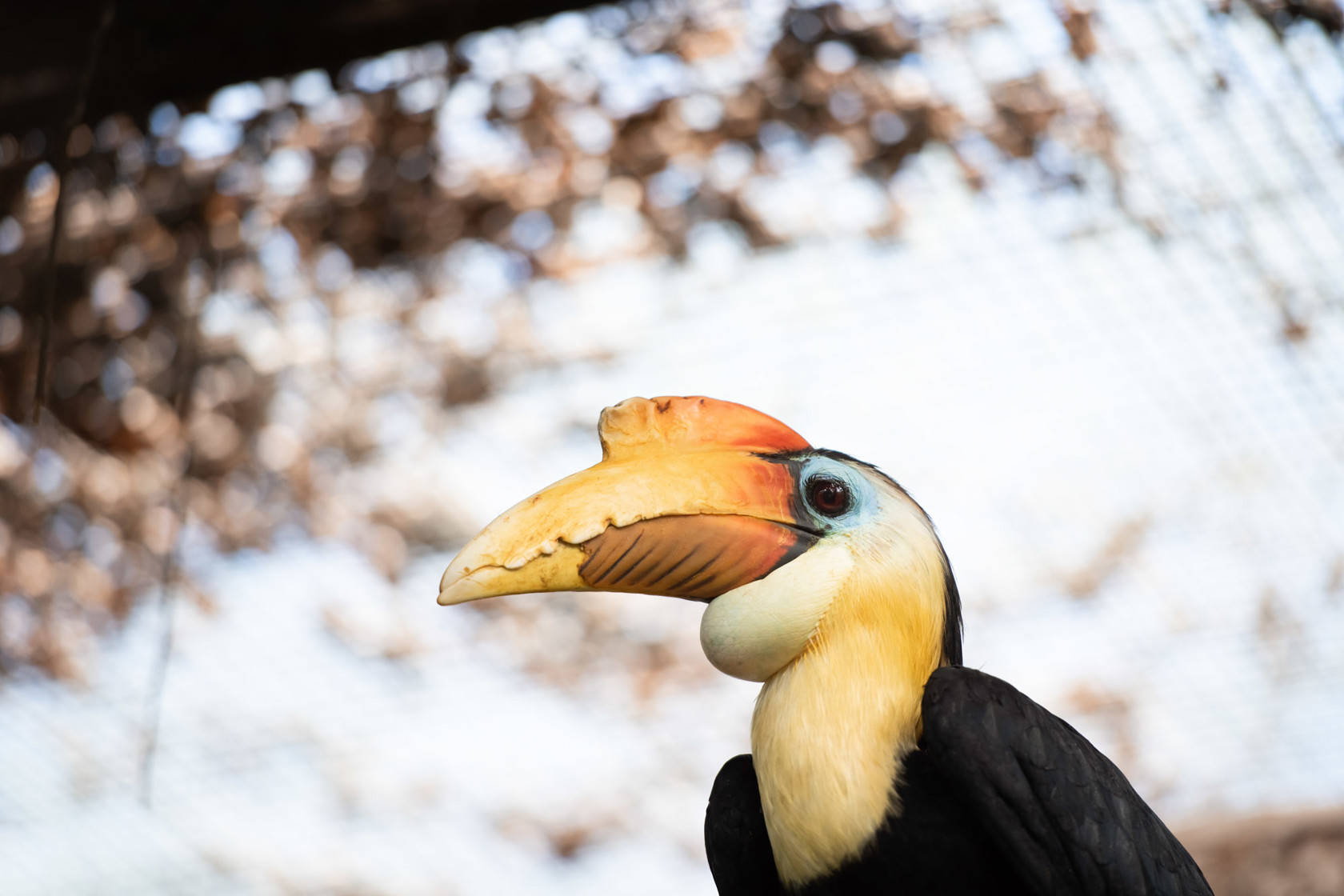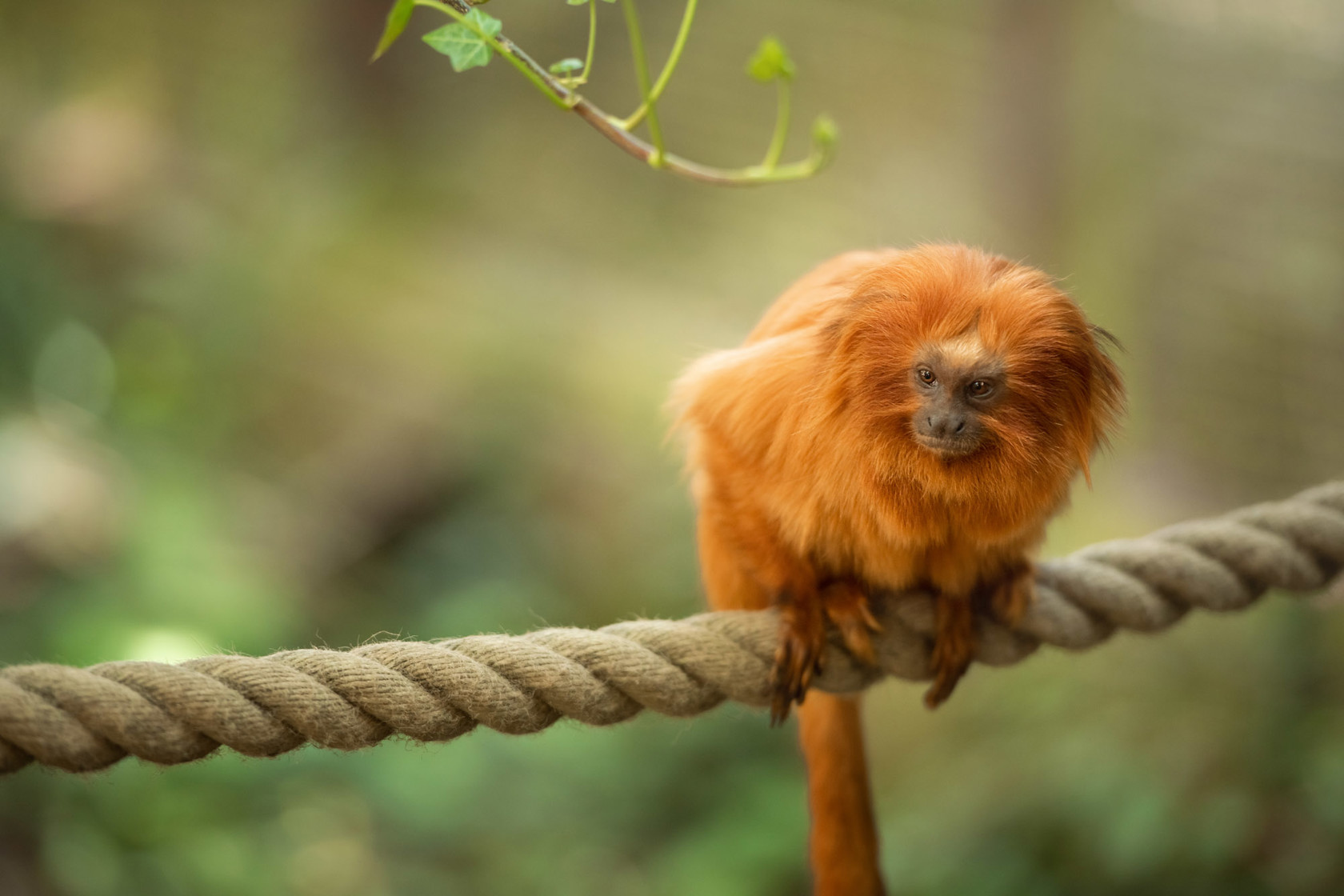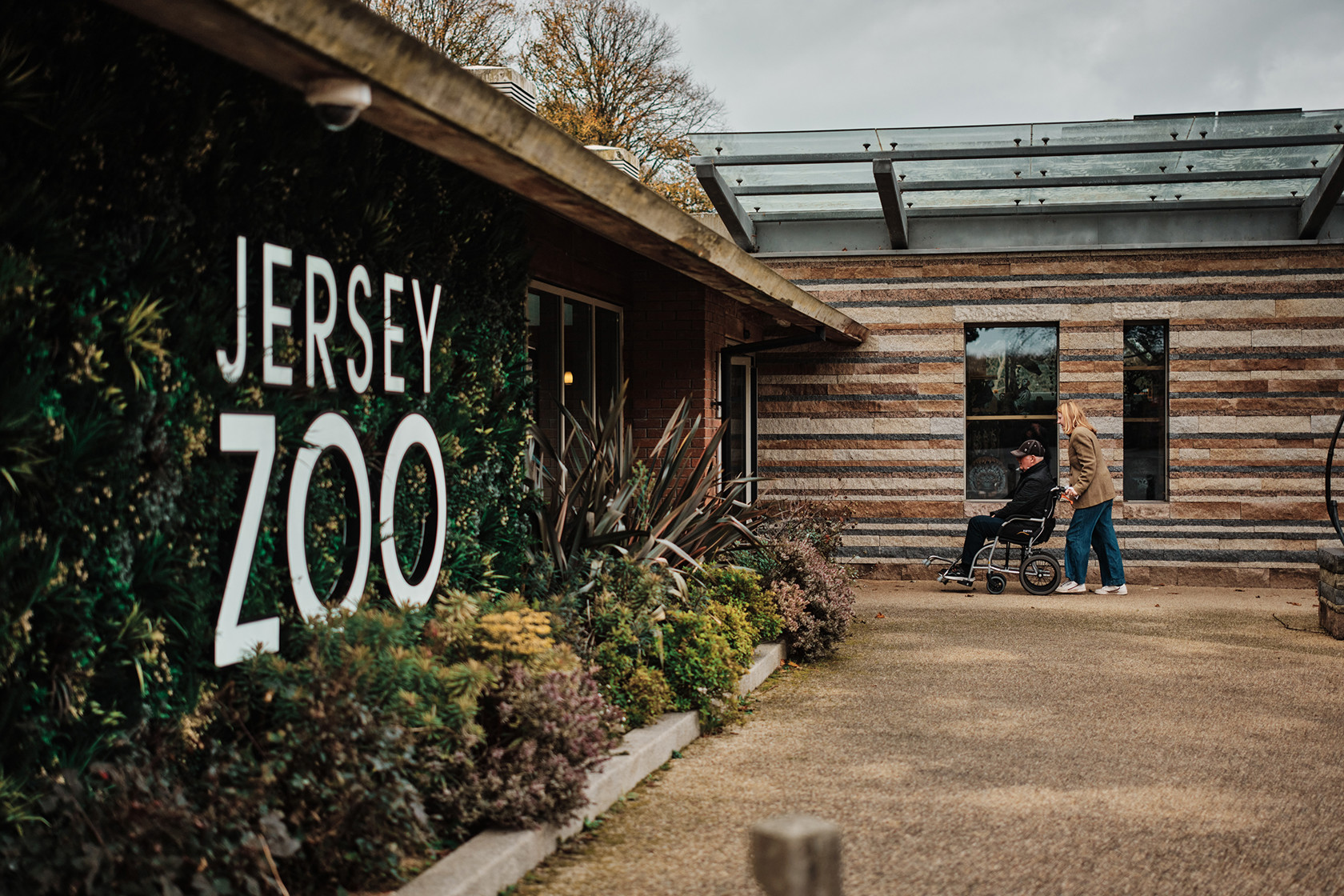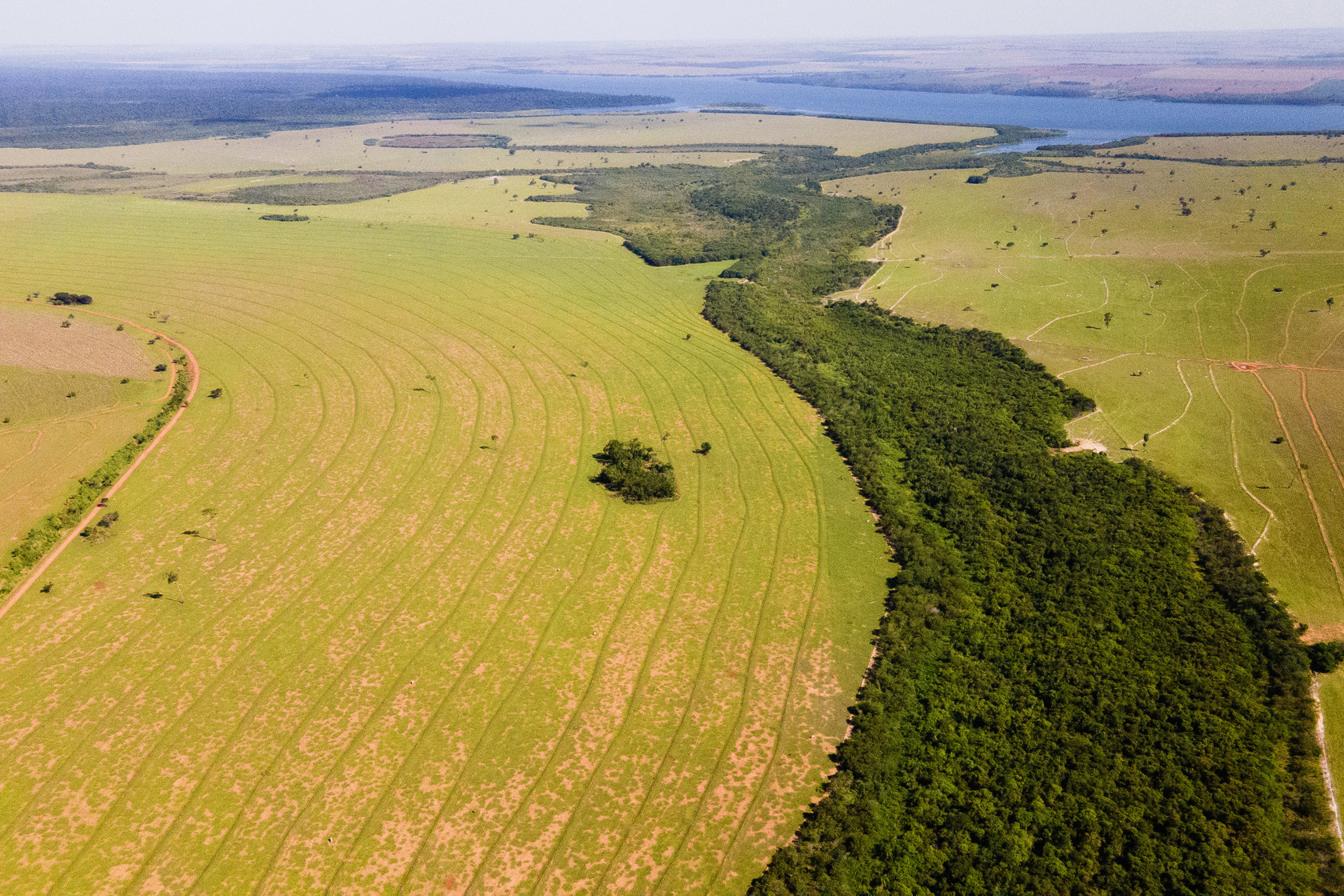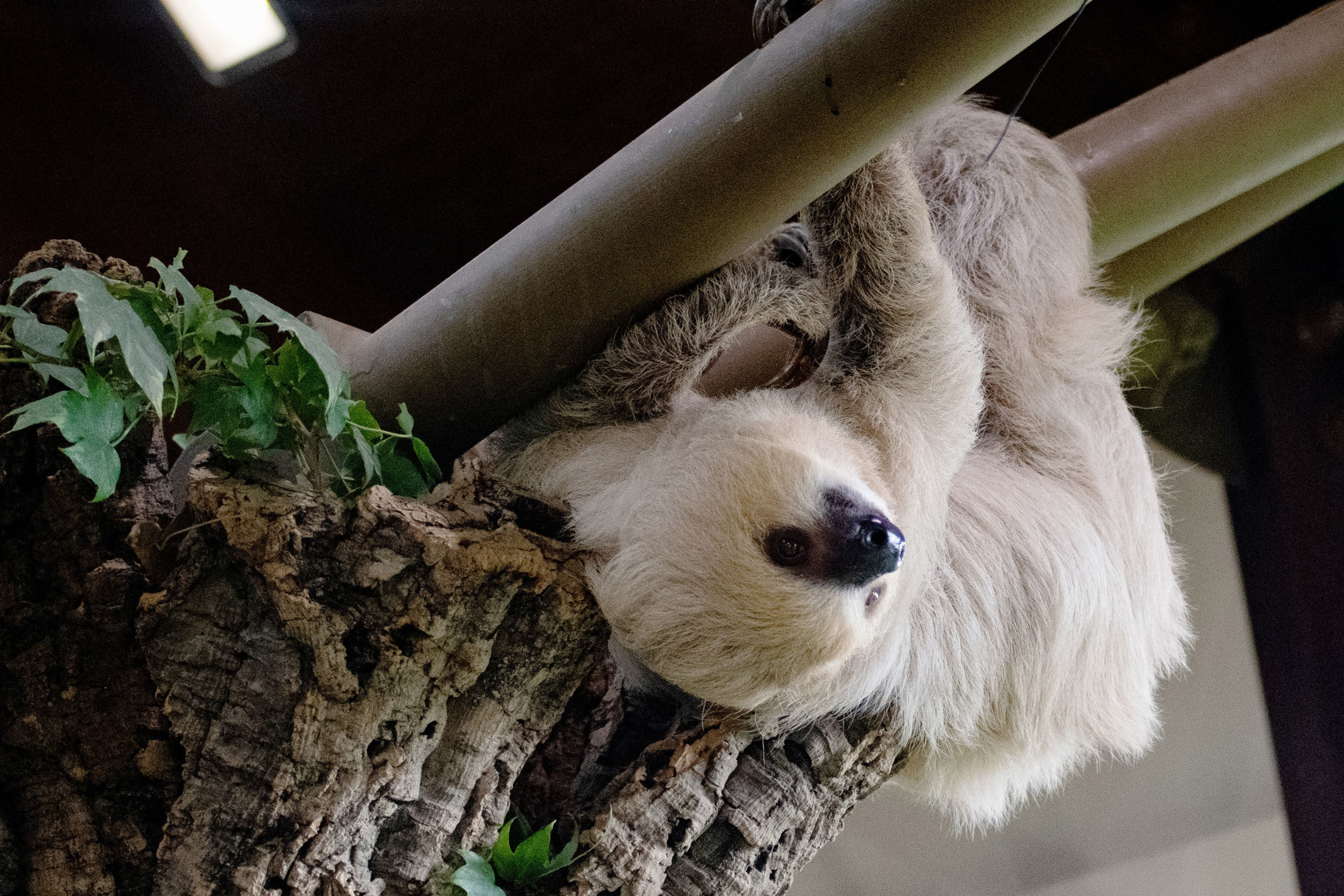Pink pigeon bouncing back from the brink
After declining to just 12 individuals in the 1970’s, Durrell’s long-term work with the pink pigeon has resulted in an astonishing comeback for the species, which has now been down-listed from Endangered to Vulnerable.
This change comes with the latest assessments, carried out by BirdLife International for the IUCN Red List of Threatened Species, revealing that after 30 years of intense conservation work, pink pigeon populations are now stabilising at around 400 individuals.
The pink pigeon is a species that resides right at the heart of the Durrell Wildlife Conservation Trust since Gerald Durrell himself helped to set up the first captive breeding programme for the species, an event which he highlights in his book Golden Bats and Pink Pigeons published in 1977.
Since then Durrell conservationists, alongside our partner organisation the Mauritian Wildlife Foundation, have worked tirelessly to save this Critically Endangered species. Once thought to be one of the rarest birds in the world, the rapid destruction of their forest habitat and the introduction of invasive species had pushed the species to the very brink of extinction.
After years of captive breeding, releases and habitat restoration, pink pigeon numbers increased from 10 individuals by the early 1990’s to an estimated 330 individuals by the year 2000, resulting in the species being down-listed from Critically Endangered to Endangered. Although habitat loss and invasive predators still threaten the species, the most recent down-listing is a positive sign that conservation efforts have finally paid off to create a stable population. Today, the pink pigeon is one of our longest running conservation programmes and also one of the most successful captive breeding programmes in the world.
In addition to this, we are delighted to see more success in Mauritius when it was revealed that the Round Island Day Gecko and Round Island boa have also been down-listed from Endangered to Vulnerable. Round Island is one of the sites outlined in our ‘Rewild Our World’ strategy, which focuses on the long-term restoration of ecosystems.
Durrell’s Chief Scientist and winner of the prestigious Indianapolis Prize, Prof Carl Jones has spent many years working to save species in Mauritius. On the recent Red List updates, he said, “Indeed we are all pleased with these achievements. The team in Mauritius has done us proud and we have to acknowledge the contributions of Durrell’s Island Restoration Manager, Dr Nik Cole, in the down-listing of the reptiles. We must recognise that it is due to the long-term commitment that Durrell has made to Mauritius, and its philosophy of animal management that has been so effective.”
This change comes with the latest assessments, carried out by BirdLife International for the IUCN Red List of Threatened Species, revealing that after 30 years of intense conservation work, pink pigeon populations are now stabilising at around 400 individuals.
The pink pigeon is a species that resides right at the heart of the Durrell Wildlife Conservation Trust since Gerald Durrell himself helped to set up the first captive breeding programme for the species, an event which he highlights in his book Golden Bats and Pink Pigeons published in 1977.
Since then Durrell conservationists, alongside our partner organisation the Mauritian Wildlife Foundation, have worked tirelessly to save this Critically Endangered species. Once thought to be one of the rarest birds in the world, the rapid destruction of their forest habitat and the introduction of invasive species had pushed the species to the very brink of extinction.
After years of captive breeding, releases and habitat restoration, pink pigeon numbers increased from 10 individuals by the early 1990’s to an estimated 330 individuals by the year 2000, resulting in the species being down-listed from Critically Endangered to Endangered. Although habitat loss and invasive predators still threaten the species, the most recent down-listing is a positive sign that conservation efforts have finally paid off to create a stable population. Today, the pink pigeon is one of our longest running conservation programmes and also one of the most successful captive breeding programmes in the world.
In addition to this, we are delighted to see more success in Mauritius when it was revealed that the Round Island Day Gecko and Round Island boa have also been down-listed from Endangered to Vulnerable. Round Island is one of the sites outlined in our ‘Rewild Our World’ strategy, which focuses on the long-term restoration of ecosystems.
Durrell’s Chief Scientist and winner of the prestigious Indianapolis Prize, Prof Carl Jones has spent many years working to save species in Mauritius. On the recent Red List updates, he said, “Indeed we are all pleased with these achievements. The team in Mauritius has done us proud and we have to acknowledge the contributions of Durrell’s Island Restoration Manager, Dr Nik Cole, in the down-listing of the reptiles. We must recognise that it is due to the long-term commitment that Durrell has made to Mauritius, and its philosophy of animal management that has been so effective.”

